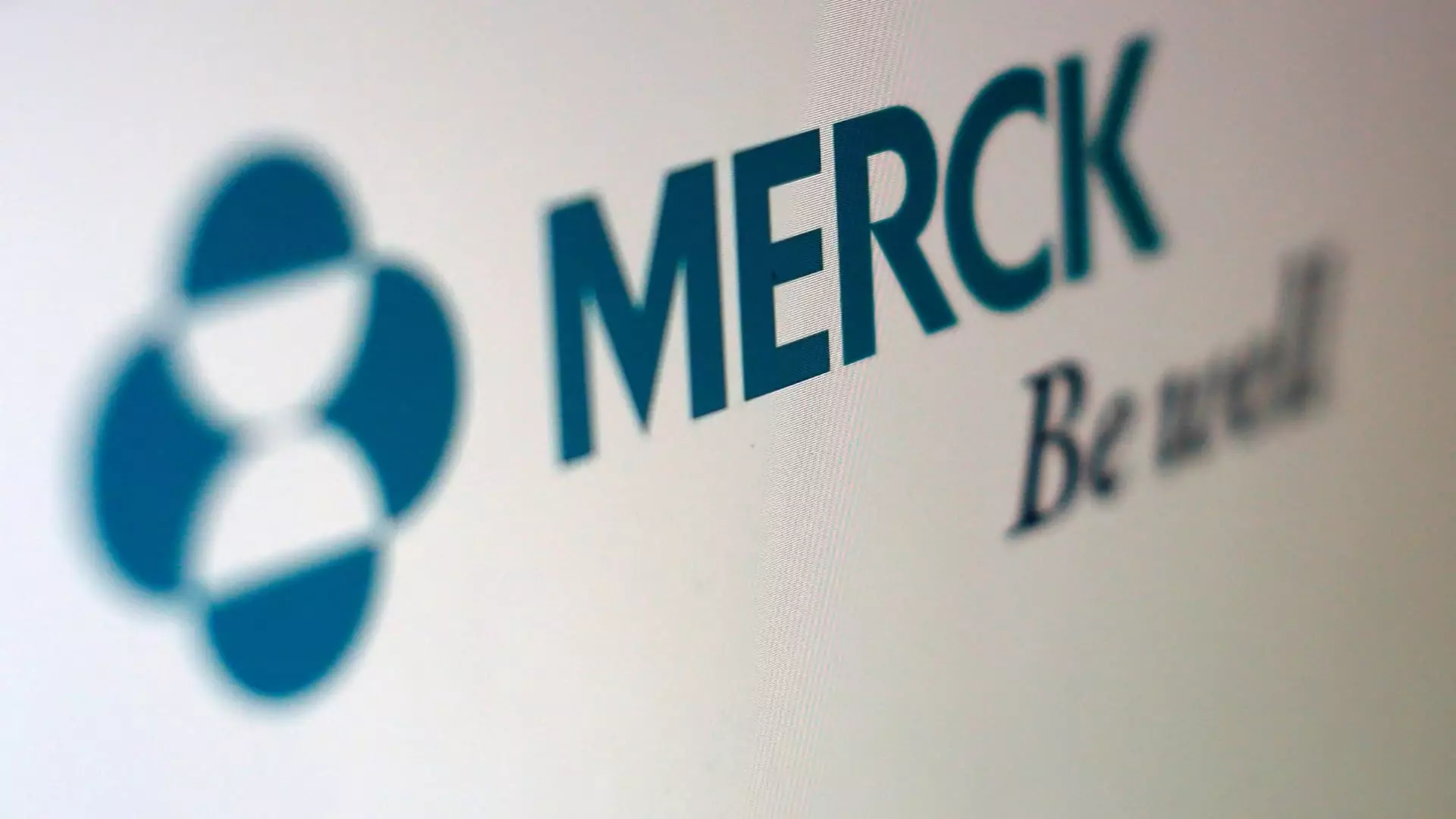The landscape of preventive healthcare is shifting dramatically with the recent approval of Merck’s Enflonsia, a shot designed to guard infants against Respiratory Syncytial Virus (RSV). The FDA’s green light is not just about adding another drug to the arsenal; it marks a pivotal moment for public health, especially for families bracing for the long, arduous RSV season ahead.
A New Era in Infant Health Prevention
Finally, parents will have access to a potent weapon against RSV, which wreaks havoc among infants every winter. This virus is not just an inconvenience; it leads to thousands of hospitalizations and, tragically, hundreds of fatalities each year. The fact that Enflonsia can be administered to infants irrespective of their weight offers a stark contrast to its primary competitor, Beyfortus, which requires dosing based on body weight. For parents grappling with the complexities of infant healthcare, this straightforward approach could be a game-changer. Merck has clearly aimed to eliminate the unnecessary stress and uncertainty often associated with infant medications.
Competitive Landscape: A Double-Edged Sword
Merck’s entry into the RSV market is significant but not without challenges. Its new shot faces stiff competition from Sanofi and AstraZeneca’s Beyfortus, which, despite supply issues last season due to overwhelming demand, generated substantial revenue of €1.7 billion. This aggressive economic backdrop adds pressure on Merck to establish a strong foothold quickly. The scarcity experienced by Beyfortus users showcases how high the stakes are in this domain; if Enflonsia falters in meeting demand, we could see a replay of last season’s logistical nightmares.
Merck’s commitment to ensuring Enflonsia’s availability in the U.S. before RSV season is commendable, but promises must translate into action. Should Merck fail to deliver amid rising demand, the ramifications could echo across pharmacies and hospitals, causing families to scramble once again.
The Science Behind the Shot
What makes Enflonsia particularly noteworthy is its impressive efficacy rates. Clinical trials indicated an 84% reduction in RSV-related hospitalizations and a remarkable 90% decrease in lower respiratory infections among infants. These numbers aren’t just statistics; they represent thousands of lives that could be saved or improved this upcoming season. Families should be able to approach RSV season with a sense of hope rather than dread.
However, this promising data warrants scrutiny. In the ever-evolving landscape of pharmaceuticals, public trust rests on rigorous and transparent evaluations of new treatments. The FDA’s hesitation in moving forward with RSV vaccine trials in young children due to safety concerns raises questions about ongoing risks related to newly approved treatments. Until further, clearer FDA endorsements stabilize public confidence, the scientific community must tread carefully.
Regulatory Challenges: The Balancing Act
With an anticipated CDC meeting aimed at establishing guidelines for RSV treatments, both Merck and its competitors will closely monitor this event. Regulatory bodies have a responsibility that extends beyond approval metrics; they are tasked with safeguarding the most vulnerable populations, particularly infants. It’s crucial that pharmaceutical companies maintain robust lines of communication with government regulators to ensure swift but safe distribution channels for these life-saving drugs.
Furthermore, the juxtaposition of the CDC’s cautious approach versus the urgent public health needs establishes a tension that must be navigated with care. As we see progress in RSV treatments, stakeholders must foster collaborative environments that prioritize patient safety and access.
Future Prospects in RSV Prevention
As the pharmaceutical landscape becomes increasingly crowded with RSV options—from Merck’s prophylactic Enflonsia to the ongoing research by Pfizer and Moderna—one must ask: is this an informative race towards combating a serious public health issue, or merely a profit-driven sprint? The political climate surrounding healthcare often distorts priorities, yet the emphasis should remain firmly on immediate patient needs over shareholder expectations.
Merck’s bold stride into the RSV arena holds promise, but it also compels us to remain vigilant. The introduction of new treatments should ignite not just optimism but critical discussions surrounding access, pricing, and ethical considerations in healthcare. As Enflonsia prepares to launch ahead of RSV season, our responsibility as informed citizens remains to advocate for a healthcare system that values lives over profits.


Leave a Reply